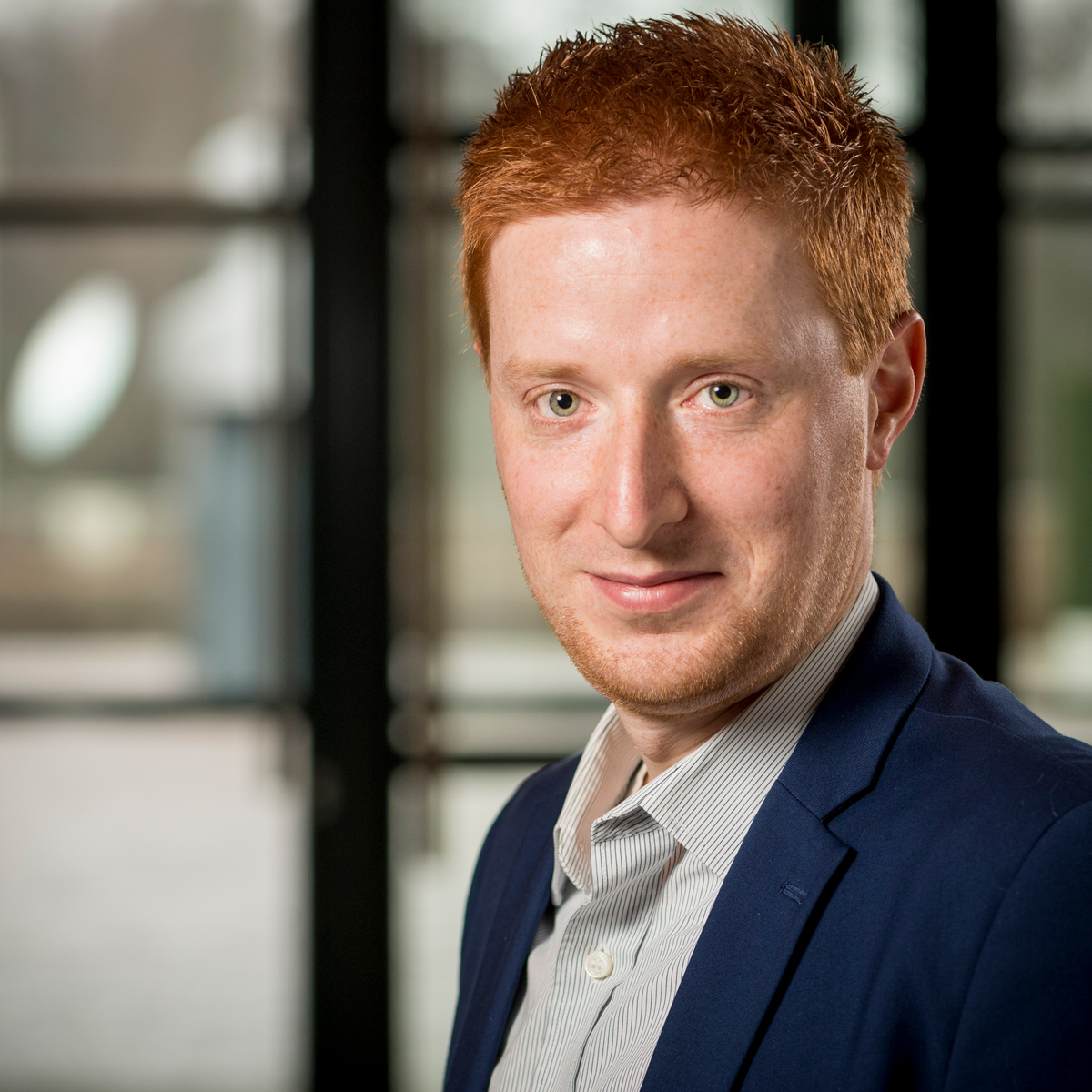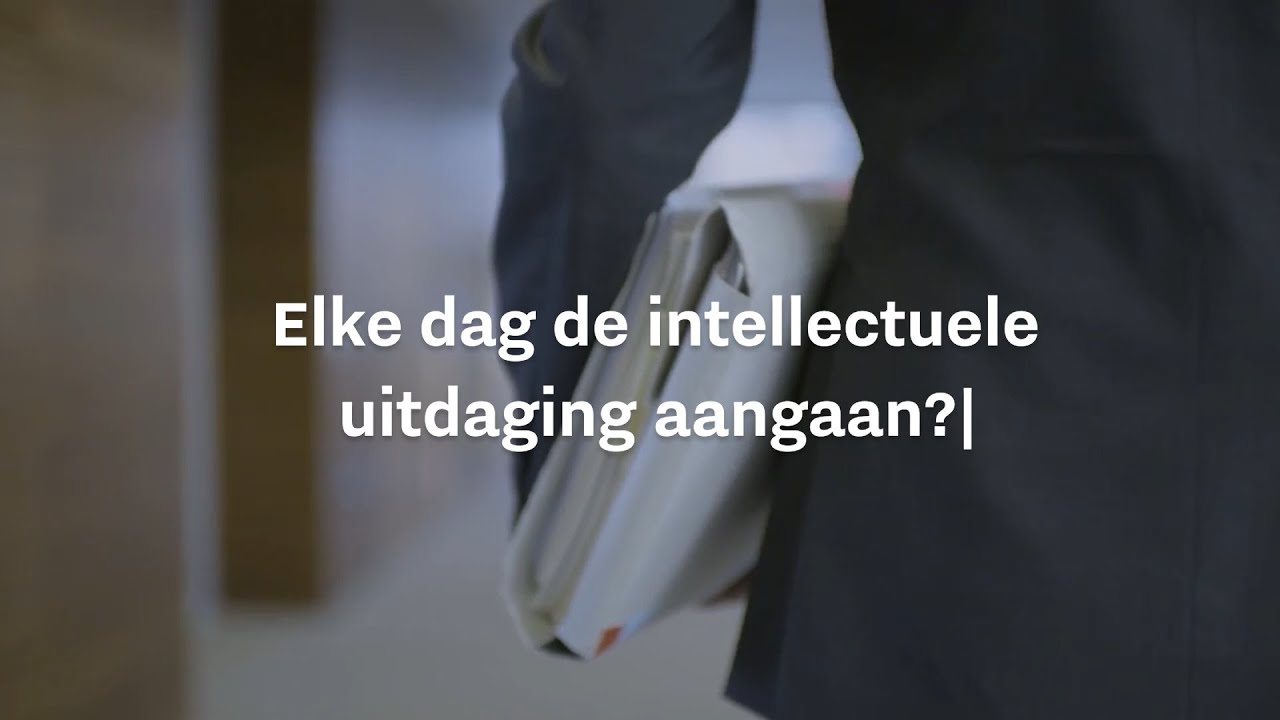Insight
In V.O.’s lab: spotlight on the patent attorney
Patent attorneys administer a key amount of the intellectual property — the crown jewels — of your business. Each one is a versatile technician who is expected to be a ‘Jack of all trades.’ What makes a good patent attorney at V.O.? Here follows a character sketch.
An exact, university education is required for a career as a patent attorney. But it is precisely the personality, with interests and social skills, that determines whether someone is cut out for the profession. Organization psychologist Jeroen van der Kolk, who trains new V.O. employees in the development of their soft skills, sees in particular that these employees are curious: “They enjoy researching things and being busy with innovations. They have a broad field of interest, and their hobbies are sometimes unique.”
Violins and patents
Among those that Jeroen trained is Teun van den Heuvel, who has played the violin for a long time. “I often see musical colleagues, which is not surprising. You need to combine technical skills with intuition, good interplay, and perseverance — whether you’re working on patents or making music.”


Teun has been an Engineering trainee at V.O. since January 2019. Previously, he worked for eight years as a researcher at Philips and studied biomedical technology. Because of the switch to V.O., he was able to further develop himself. As Teun relates, “Technicians are often accustomed to everything being black or white. Yes or no. You learn not to do that so much. Now I see everything in various shades of gray. Examiners who assess your patent application are very firm in the event of a rejection, for example. But then I wonder: How can we persuade this examiner otherwise?”
Creative compass
Creativity is then required of a patent attorney at that time. “Say that an examiner of a patent-granting authority is not convinced by an application. I then look at the strategic options, from our client’s interests. You try to find routes to a solution that is optimal for your client. Determining the right step forward demands strong analysis and creativity.”
Jeroen agrees with this approach. “You don’t have to be creative technically; that is the job of the client. But you do have to be inventive in the way you look at a product. Do you have an eye for all sorts of aspects of an innovation that you can attribute to the client?
Among other factors, that inventiveness expresses itself in the way you put the client’s innovation into words. Teun adds, “You must describe something precisely and in an understandable manner. You consider words and search for a term that properly covers the meaning. I have further developed my language skills in recent years. Just like other colleagues, this enables me to quickly hear — also in personal discussions — whether someone’s formulation is incorrect. As patent attorneys, we are perceptive to that.”
We have started a campaign for the recruitment of trainees. Watch one of the videos below that we are using especially for this purpose.
Simultaneous chess
In addition to a feeling for language, maintaining an overview is also important. According to Teun, working for V.O. is like a game of ‘simultaneous chess’: you play on multiple boards (are involved with multiple client innovations) at the same time. These can vary from a new whipped cream spray can to a different type of wind turbine.
A patent attorney must be able to communicate well in all sorts of situations. In their contact with clients, social skills are important, Jeroen says. “You don’t learn many soft skills at university. Think about discussion techniques. How can you listen to a client, ask questions, and summarize as well as possible? But also: How do you give clear advice to a client so that they immediately know what their best option is? And also, how can you maximally please the client? We practice those skills with each other under guidance. V.O. sees that these soft skills are important and it wants to further develop them in their new employees.”
Eager to learn
Jeroen sees that the new generation of trainees is even more vocal than the group that he trained earlier. “Clients are also more direct now, so they also expect that from patent attorneys. I think that the entire professional world is developing in this way.”
To be successful, patent attorneys must be a ‘careful Jack (or Jane) of all trades’, also in the future. There is still sufficient room in the profession to develop all those skills. Jeroen adds, “The best trainees are eager to learn, and that also applies to all good patent attorneys.”
Poll: What do you expect from a good patent attorney? Let us know
Poll
What do you expect from a good patent attorney?
A patent attorney:
1. Makes a patent application and makes sure I get the patent
25%
2. Advises me on the full range of my IP capabilities
25%
3. Completely unburdens me and looks after my IP interests
25%
Choose your answer and see other readers' responses!

Share